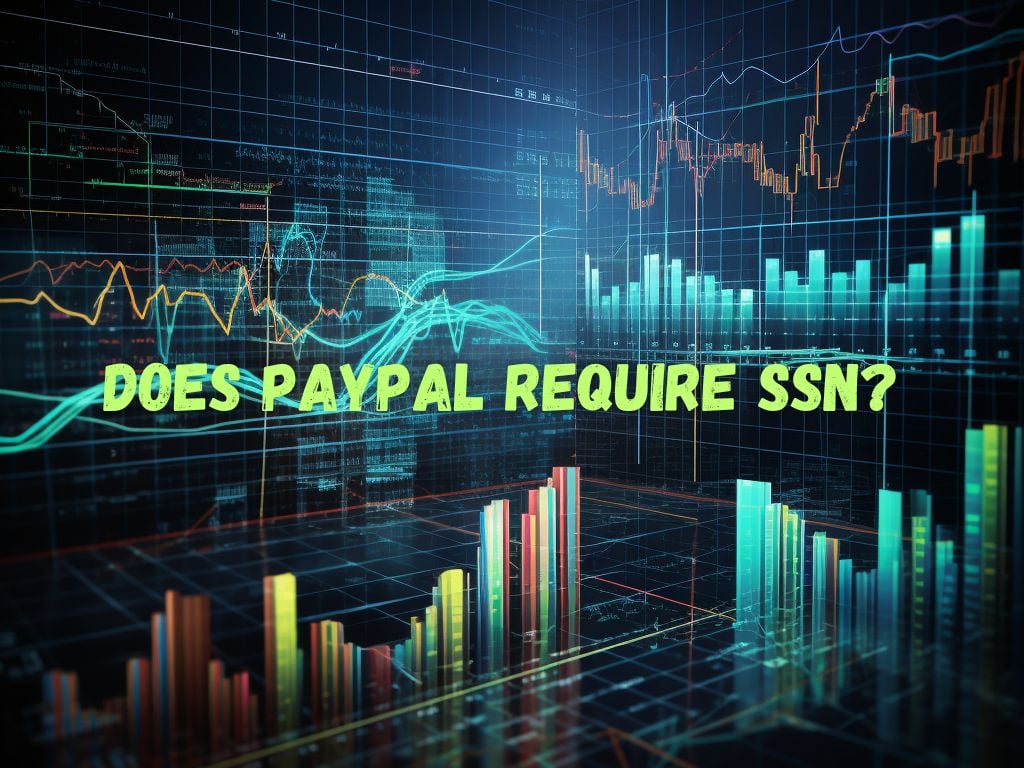If you’ve ever used PayPal, you might be wondering why the platform asks for your Social Security Number (SSN).
In this article, we will explore the reasons behind PayPal’s SSN requirement, any exemptions that may apply, and how it can impact your account.
Understanding this aspect is crucial for anyone considering or already using PayPal.
Why Does PayPal Require SSN?
PayPal, like many financial institutions, requires your SSN to verify your identity and ensure compliance with government regulations.
Here are the reasons for this requirement:
Identity Verification
By linking your SSN to your PayPal account, the platform can verify your identity accurately. This helps in preventing fraudulent activities such as identity theft or unauthorized account access.
Verifying your identity also helps PayPal establish a trusted relationship with its users.
Compliance with Government Regulations
PayPal, as a financial institution, is subject to various regulations to combat money laundering, terrorist financing, and other illegal activities.
The US government requires PayPal to collect certain customer information, including SSNs, to ensure compliance with these regulations.
By collecting SSN data, PayPal can meet its legal obligations while conducting business.

Prevention of Financial Crimes
Having your SSN on record allows PayPal to conduct thorough background checks and monitor transactions effectively.
This helps in detecting and preventing financial crimes such as fraud, money laundering, and illegal funds transfer.
By linking your SSN to your account, PayPal can identify suspicious activities and take appropriate action to protect both you and other users.
Creditworthiness Assessment
In certain cases, PayPal may use your SSN to assess your creditworthiness. This is particularly relevant for PayPal Credit, which is a credit service linked to your PayPal account.
By evaluating your credit history and information associated with your SSN, PayPal can determine your eligibility and appropriate credit limits.
Tax Reporting
If you use PayPal to receive payments as a seller or engage in business transactions, PayPal is required to provide annual tax documents (such as 1099-K forms in the US) to users who meet certain income thresholds.
By linking your SSN to your PayPal account, PayPal can accurately report your income and help you meet your tax obligations.
In summary, PayPal needs your SSN to verify your identity, comply with government regulations, prevent financial crimes, assess creditworthiness, and facilitate tax reporting.
Can I trust PayPal with my SSN?
PayPal has implemented robust security measures to protect your personal information.
They are a trusted and globally recognized financial institution.
However, it is important to note that no online platform or financial institution can guarantee 100% security against all potential risks.
But, PayPal’s strong security measures and track record of reliability make it a trustworthy entity for handling sensitive information such as your SSN.
When using PayPal, it is advisable to follow best practices to further enhance your security.
This includes regularly updating your account password, enabling two-factor authentication, and being cautious of phishing attempts and suspicious emails or links.
By carefully evaluating PayPal’s security measures, their adherence to regulations, and their commitment to user privacy, you can gain confidence in trusting them with your SSN.

Exceptions and Exemptions
While PayPal generally asks for an SSN from its users, there are certain situations where an exemption may apply.
For example, PayPal may waive the SSN requirement for government agencies or certain non-profit organizations.
However, keep in mind that these exceptions are typically specific and may require additional documentation for verification.
Privacy and Security Concerns
One of the main questions that arises when it comes to providing your SSN is related to privacy and security.
It is natural to be concerned about sharing such sensitive information online. PayPal, being a globally recognized and regulated service, has implemented robust security measures to safeguard your data.
They employ advanced encryption technologies and follow industry best practices to protect your personal information.
It’s worth noting that PayPal has a strict privacy policy in place, which means they will only use your SSN for the purpose of verifying your identity and complying with the law.
They do not sell or share your information with third parties without your consent.
Necessity for Buyers vs. Sellers
It’s important to understand that not all PayPal users are required to provide their SSN.
The requirement varies depending on the type of account and the intended use. For personal accounts used primarily for buying products or services, providing an SSN may not be necessary in all cases.
However, if you plan to use PayPal for business purposes or receive payments as a seller, you will likely need to provide your SSN or apply for an Individual Taxpayer Identification Number (ITIN) if you are not eligible for an SSN.
When it comes to business accounts, PayPal requires SSN or ITIN because it helps them comply with tax regulations and report any relevant sales or income information to the appropriate government agencies.
Impact on Account Limitations
While PayPal allows users to create accounts without providing an SSN, not verifying your identity can limit certain account functionalities.
For instance, you may face restrictions on sending or receiving money beyond a certain threshold.
Additionally, without a verified SSN, you may not be able to access or use your PayPal balance for purchases or other transactions.
Verifying your identity helps prevent fraud, protect your account, and ensures a more seamless experience while using PayPal.
Reporting and Compliance
Maintaining transparency and complying with tax obligations is important for PayPal as well as its users.
When a user receives a certain amount of income through PayPal, they are required to report and pay taxes on that income to the relevant tax authorities.
PayPal, being a financial institution, has a legal obligation to provide the necessary tools and reporting facilities for users to fulfill their tax obligations accurately.
By linking your SSN to your PayPal account, you enable the platform to provide you with the necessary annual tax documents and reports.

Frequently Asked Questions on PayPal and SSN
Q: Can I use PayPal without an SSN or ITIN?
A: It depends on the type of account you have and the purpose for which you are using PayPal. Personal accounts used primarily for buying goods or services may not require an SSN.
However, for business accounts or receiving payments as a seller, providing an SSN or ITIN is generally necessary.
Q: Is there a way to bypass PayPal’s SSN requirement?
A: As a regulated financial service provider, PayPal has a legal obligation to comply with government regulations, which includes the verification of user identities.
While there may be some exceptions or scenarios where an SSN is not required, attempting to bypass PayPal’s requirements may lead to limitations or restrictions on your account.
Q: Are there any alternatives to providing my SSN to PayPal?
A: If you are not eligible for an SSN, PayPal offers the option to apply for an Individual Taxpayer Identification Number (ITIN).
An ITIN serves a similar purpose to an SSN and can be used as an alternative when verifying your identity with PayPal.
Conclusion
Providing your SSN to PayPal is an essential step in establishing your identity and complying with the law.
While concerns about privacy and security are natural, PayPal has implemented stringent measures to protect your personal information.
Understanding the necessity of an SSN based on the type of account and intended use is crucial for utilizing PayPal’s features effectively.
By complying with PayPal’s requirements, you can ensure a more secure and seamless experience while using the platform.
Remember, sharing your SSN with PayPal is a standard practice in the financial industry. With PayPal’s commitment to data security and privacy, you can trust that your information is in good hands.


 Tags:
Tags:










